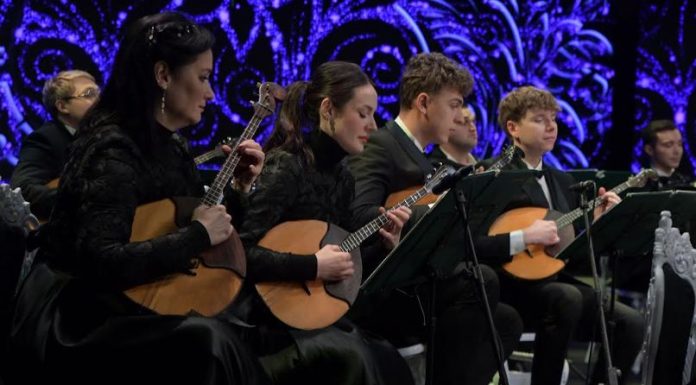DNA
ISLAMABAD, July 24 : A vast majority of the Pakistanis are against any restriction or ban on Chinese video social media giant TikTok which they enjoy on a daily basis, says a report published by Gwadar Pro on Friday.
Pakistan’s telecommunications regulator earlier banned video streaming platform Bigo and issued a final notice to TikTok over concerns that they are encouraging “immoral, obscene and vulgar content”.
The Pakistan Telecommunications Authority (PTA) said that it had earlier raised the allegations with both companies and had received responses that were “not satisfactory”.
“Therefore, PTA has decided to immediately block Bigo and issue final warning to TikTok to put in place a comprehensive mechanism to control obscenity, vulgarity and immorality through its social media application”, said a government statement.
But Pakistanis who are fans of the Tik Tok maintain the government should not follow India who banned it. “We are friends of China. We should not ban Tik Tok,” said Mohammed Ismail, a university student who was among many interviewed on the issue.
He said Tik Tok was a great way of spending time and the government should not make allegations against it. Arif Khan, a government employee said he spent his leisure time using Tik Tok. “I am shocked with the news. PTA should think twice before acting against the Tik Tok”, he added.
People from different walks of life gave almost identical positive replies on the Tik Tok. They were unanimous that Tik Tok provided them free entertainment.
“Why should they ban it? Do they want to take entertainment away from us?” Maryam Awais, an artist, said Tik Tok does not promote any wrong message. “We should not be narrow-minded. Tik Tok is a great fun”, she commented.
In 2012, PTA blocked video-sharing website YouTube for the hosting of a trailer for an amateur film considered blasphemous. That ban remained in place for four years.
Last year, in a landmark case wherein the Awami Workers Party (AWP) challenged a ban on its website, the Islamabad High Court ordered PTA to frame rules that would clearly delineate the criteria and process by which websites could be blocked.
Rights activists, however, said little had been done to make the process more transparent. Farieha Aziz, co-founder of digital rights group Bolo Bhi, said the telecommunications authority has been exercising ‘blanket powers’ on censorship.
“The criteria is just what the PTA believes or what consensus it believes exists in society”, she said, adding “these terms have never been defined (and) the PTA is making these decisions unilaterally and with no transparency”.
Earlier this month, the regulator suspended access to the popular online game PlayerUnknown’s Battlegrounds, better known by the acronym PUBG, saying it was “addictive, wastage of time, and poses serious negative impact on physical and psychological health of the children”.
Bigo, a Singapore-based company, provides live video streaming and video content creation services to users on its platform. Its Likee platform, popular in Pakistan, has more than 100 million global monthly users, according to company data.
Pakistan’s move to potentially ban TikTok, a social media platform that allows users to share short videos, follows a ban by authorities in neighbouring India, where the government said the app, along with 58 other Chinese software applications, was a threat to “national security” because of data privacy concerns.
Developed by Chinese developer ByteDance, Tik Tok has been downloaded more than two billion times worldwide, according to technology research firm Sensor Tower.
In Pakistan, the app is popularly used across a range of economic backgrounds to share short videos, often depicting people singing along, or lip-syncing, to popular songs; or acting out scenes overdubbed with popular Bollywood movie dialogue.
In a statement, Tik Tok said it considered “maintaining a safe and positive in-app environment our top priority”, and had removed more than 3.7 million videos from Pakistan in the second half of 2019 for violating content guidelines.
“We are committed to further strengthening our safeguards to ensure the safety of our users, while increasing our dialogue with the authorities to explain our policies and demonstrate our dedication to user security”, the company said.
Romaisa Khan, 20, is a Tik Tok star in Pakistan, with 2.8 million followers and videos that regular register more than 500,000 views.
She said the platform needs stricter content moderation, especially for users who are minors, but the government should not ban it outright. “I don’t think banning is a solution, because there are a lot of people who are earning (a living) through TikTok or getting work through Tik Tok, so it’s kind of a good thing as well”, she said.
Khan’s Tik Tok fame helped her breakthrough in the country’s television industry, she said, with the exposure she got on the platform helping her get modelling jobs with large national and multinational brands. This year, it helped her land her first role in a major television soap opera.
“The industry has a lot of nepotism, and it’s kind of hard to break into the industry if you don’t have anything behind you”, she said. “Tik Tok helps you to get into this, people want to work with you.”











